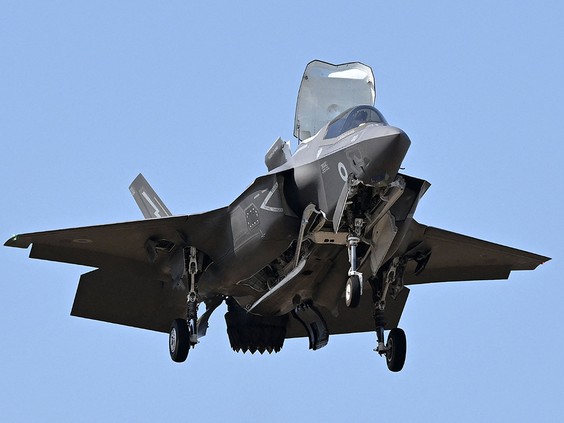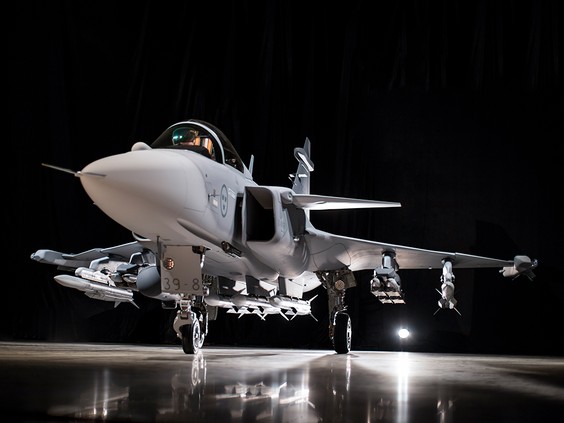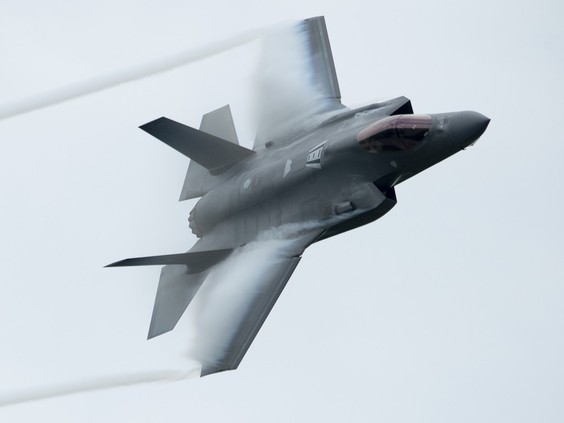An Agreement Turned Sour
"This is a very serious issue [claims that the U.S. has a disabling "kill switch" for the $19-billion aircraft fleet that Canada has ordered from Lockheed Martin].""Certainly the situation makes it difficult to sustain operations without continued support.""Until [Donald] Trump was elected nobody gave a thought to the idea that the U.S. president would be cutting off Europe or trying to annex Canada or take over Greenland.""It was a completely crazy Idea."Bill Sweetman, author: Trillion Dollar Trainwreck: How the F-35 Hollowed out the U.S. Air Force"Lockheed Martin is committed to helping our customers strengthen their airpower and security with the F-35.""As part of our government contracts, we deliver all system infrastructure and data required for all F-35 customers to sustain the aircraft.""Foreign military sales are government-to-government transactions, so anything further will be est addressed by the U.S. or respective customer governments."Rebecca Miller, Lockheed Martin media relations director
 |
Surprise, surprise, there are times when the unexpected has a habit of popping by and delivering a blow to amicable relations between nations, particularly those historically united in language, values, democratic ideals and intertwined trade. It has recently been revealed by defence analysts that the United States -- now under the guardianship of newly-installed President Donald Trump who has lost no time in bringing to that long-term continental friendship between Canada and the United States hostile actions and presumption of force sufficient to 'persuade' Canada that it would be in its best interests to fold up its sovereignty and apply for the honoured position as America's 51st state -- will have the upper hand in control of Canada's airfleet of F-35 military jets.
The issue, one of defence-sharing and creating interoperability between NATO members making use of the same aircraft needless to say, creates a situation where one country -- the world's most powerful -- has complete control of operational systems of a widely-shared aircraft. Trust in the United States' power and reliability among member NATO countries was gained over the years since the Second World War and had just latterly been creeping downward in a confusion of mixed messages by a newly nationalist-isolationist U.S., resentful of its own self-imposed role as protector of Europe and other allied nations from the potential of attack by other nations' malign military forces.
 |
| Swedish-built Gripen E fighter jets would be the likely replacement should Canada’s F-35 contract be cancelled. |
Even while dismissing any problem in the situation, Canada's Department of National Defence did acknowledge that control of the planes' software and hardware upgrades required for ongoing aircraft operations were invested in the Pentagon, leaving Canada with a significant strategic vulnerability. Britain had evidently on negotiating with the U.S. for the F-35, requested that control over specific F-35 data systems be left with them, but it appears the Americans outright rejected the request.
In early 2023, Canada's Liberal government announced its intention to sign an agreement for 88 F-35 aircraft at an initial cost of $17 billion that would total $70 billion over time incorporating the life-cycle cost for the project. It is only recently that some defence analysts have spoken of concerns over a specialized kill switch installed by the United States. No such switch existed, advised DND spokesperson Kened Sadiku. However, admitting that the U.S. remained in charge of both software and hardware plane upgrades. "Upgrades are available to all nations that participated in their [the planes'] development."
When the company was approached directly for reassurances from President Trump that he would not take steps to cut Canada off from future F-35 software upgrades and initiatives, a Lockheed Martin spokesperson would only commit to stating his employer's commitment to providing affordable and reliable services to its customers; for a response to the question where assurances were given by the Trump administration over the issue, the statement went on to say that question was one settled government-to-government.
Former defence executive Bill Sweetman, on the other hand, pointed out guarantees were absent that the U.S. would supply Canada with the upgrades, highlighting that any American decision to "unplug" Canada from the F-35 technical updates could potentially render the planes inoperable.
Former head of DND procurement, Alan Williams, confirmed the U.S. maintained full control over aircraft software. Mr. Williams, who had signed the original agreement to have Canada contribute to funding F-35 development, said the decision to buy the F-35 had made Canada vulnerable. "Now we find ourselves having to be careful and under the threat of potential chaos. Trump can undermine everything we want to do."
Originally, it was pointed out by supporters of Canada's F-35 orders how beneficial the purchase would be to Canada, referring to the hundreds of millions in contract value Canadian companies would earn through Producing supply parts for the aircraft. That was then. More recently President Trump had advised Lockheed Martin his expectation that aircraft supply parts would have to be reestablished back in the United States, effectively diminishing Canada's expectation of benefiting through employing Canadians to produce parts for the F-35.
 |
Labels: C-35, Canada, Department of National Defence, Lockheed Martin, Pentagon, Software/Hardware Control, U.S. President Donald Trump
0 Comments:
Post a Comment
<< Home